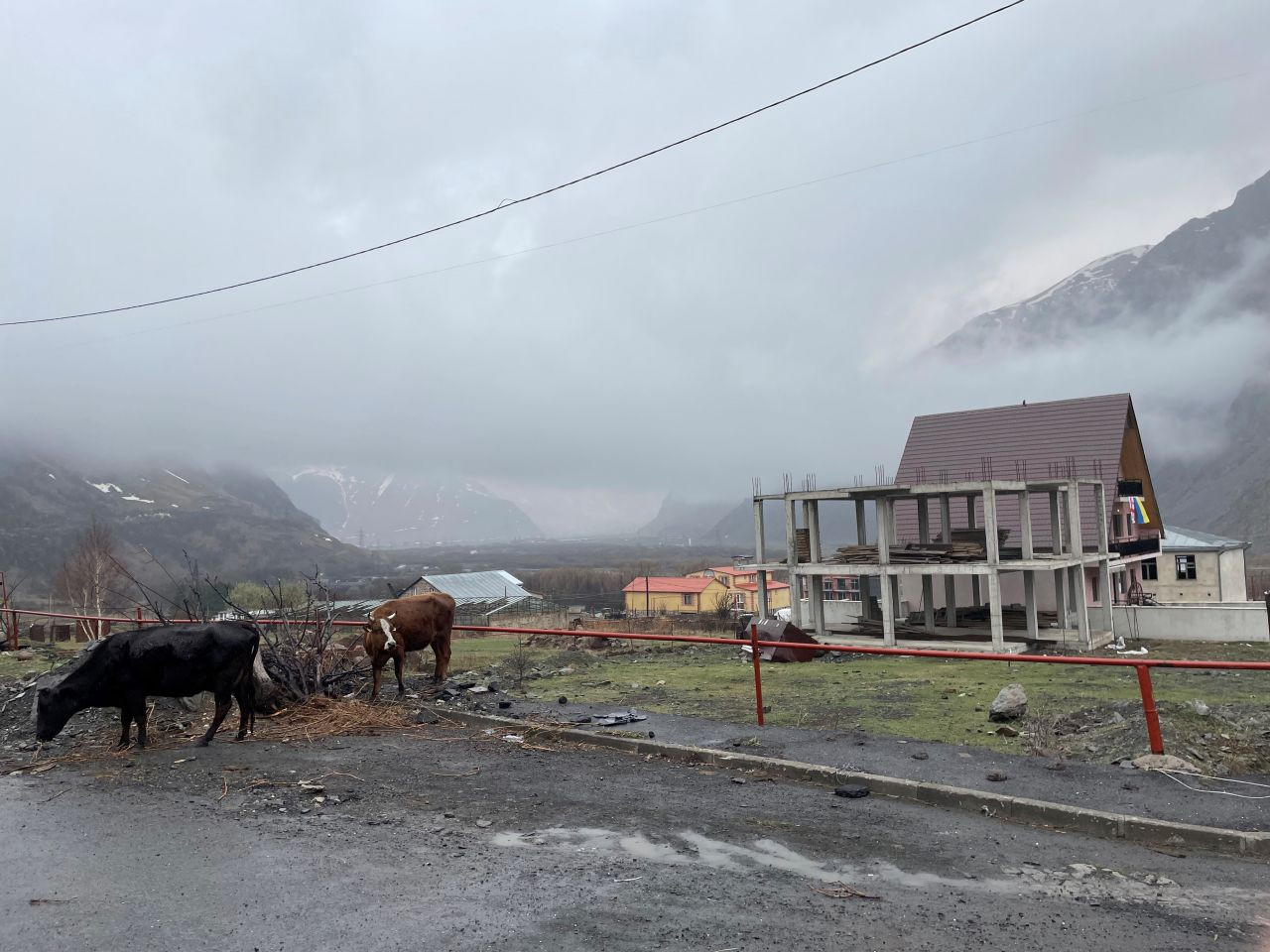Written by Maurin Karzig & Anna Schweiter, students of the University of Zurich
Located in the southern Caucasus region, Georgia is a mountainous country with a population of 3.7 million people. Georgia provides rich natural, geographic and climatic capabilities and historical-cultural heritage. Nearly half of the population still lives in rural areas, as Georgia is a traditional agricultural country (Khartishvili et al. 2019:2). According to MyCaucasus (2019), Georgia's agriculture plays an important role, since natural resources, fertile soil and the ideal climate allow many kinds of vegetables and fruits to grow. The country's regions possess different environmental and traditional characteristics and are economically diversely developed (Paresishvili et al. 2017:345). Even though high mountain regions bring limited economic potential, these areas developed as recreational and leisure destinations are what increased their economic value (Gugushvili et al. 2017:49).
After the collapse of the Soviet Union, the process of land fragmentation and property privatization promoted the development of subsistence farming, a type of production for primarily personal consumption (Gugushvili et al. 2017:49). Especially for countries with weaker industrial and innovative technological potential, tourism plays an important role for economic development and counts to the leading economic branches besides agriculture (Gugushvili et al. 2017:50). Therefore, the authors see the great potential of Georgian tourism to improve other related industries such as agriculture and trade (Gugushvili et al. 2017:49).
Rural tourism, or synonymously agrotourism, is a fast-emerging sector of small entrepreneurship in Georgia. As integral element of rural economies, tourism generates employment and income for farmers in marginal areas and supports retail growth (Khartishvili et al. 2019:1,5). Capital, income and employment get transferred from industrial and urban areas to nonindustrial regions. Rural tourism enables employment in the service sector, which facilitates these regions' economic development (Paresishvili et al. 2017:344). A cooperation between different stakeholders, including those indirectly involved in tourism businesses like shops and transportation companies, support the local social and economic well-being and development of rural areas (Khartishvili et al. 2019:5). Therefore, agrotourism is seen as an important tool of regional economic growth, source of income and employment (Gugushvili et al. 2017:49).
Paresishvili et al. (2017:345) see rural tourism as a sphere of double interests of the native population and the guests. The tourist seeks to spend time in environmental conditions, eat healthy natural farm products and participate in farming and domestic activities. Since food expenditures represent approximately two-thirds of daily tourist expenditures (Hueller et al. 2017:41), the increasing tourist demand for locally grown products and the growing tourism sector enlarge the potential market for agricultural production. "The tourism sector thereby not only offers potential for non-agricultural entrepreneurial activities, but also for increasing income-generating activities of local agri-food producers" (Hueller et al.2017:41).
Despite these beneficial developments, small-scale and isolated businesses suffered from the pandemic under job cuts, economic losses and uncertainty. An initiative of the Food and Agriculture Organization of the United Nations (FAO) promotes agrotourism by highlighting the local Georgian food production, connecting small-scale producers with local hotels and restaurants, laying solid foundations for sustainable and responsible tourism and agrotourism development strategy (FAO 2020).
Sources:
Food and Agriculture Organization of the United Nations (2020): Georgia's agrotourism receives further boost from EBRD and FAO. Food and Agriculture Organization of the United Nations, Tbilisi, Georgia. URL: https://www.fao.org/europe/news/detail-news/en/c/1309792/. (Access: 11.11.22)
Gugushvili, Temur; Salukvadze, Gvantsa & Salukvadze, Joseph (2017): Fragmented development: Tourism-driven economic changes in Kazbegi, Georgia. Annals of Agrarian Science, Volume 15, No. 1, Pages 49-54, ISSN 1512-1887, https://doi.org/10.1016/j.aasci.2017.02.005.
Hueller, Sarah; Heiny, Jennifer & Leonhäuser, Ingrid-Ute (2017): Linking agricultural food production and rural tourism in the Kazbegi district – A qualitative study. Annals of Agrarian Science, Volume 15, No. 1, Pages 40-48. https://doi.org/10.1016/j.aasci.2017.02.004.
Khartishvili, Lela; Muhar, Andreas; Dax, Thomas & Khelashvili, Ioseb (2019): Rural Tourism in Georgia in Transition: Challenges for Regional Sustainability. Sustainability Volume 11, No. 2, Pages 1-5. https://doi.org/10.3390/su11020410.
MyCaucasus (2019): Entwicklung des Agrotourismus in Georgien. MyCaucasus, Georgien Blog, 2019. URL 'https://mycaucasus.com/de/firma/blog/artikel/Entwicklung-des-Agrotourismus-in-Georgien' (Access: 11.11.22).
Paresishvili, Otar; Kvaratskhelia, Laura & Mirzaeva, Valentina (2017): Rural tourism as a promising trend of small business in Georgia: Topicality, capabilities, peculiarities. Annals of Agrarian Science, Volume 15, No. 3, Pages 344-348. https://doi.org/10.1016/j.aasci.2017.07.008.
